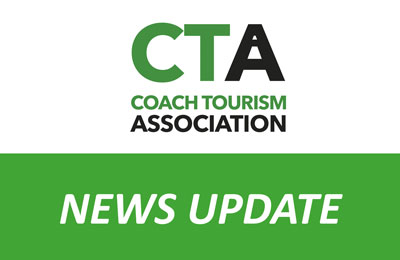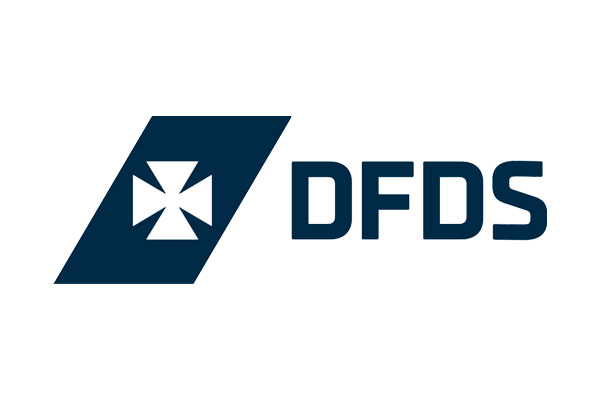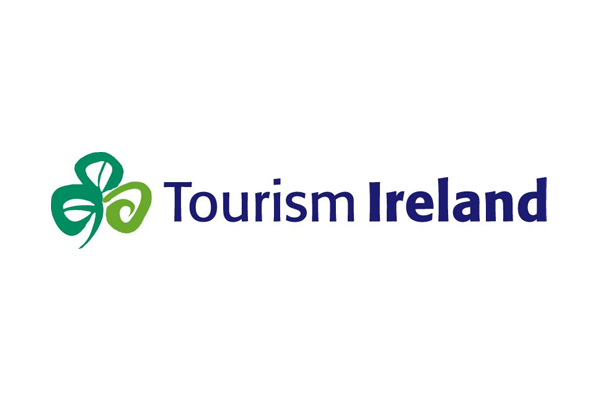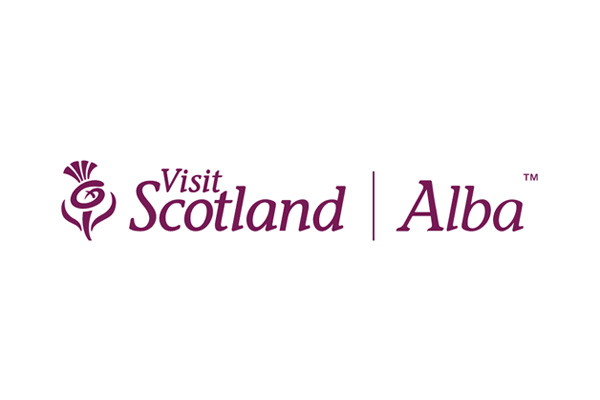COVID-19 Updates – week commencing 01/02/21
More updates of developments from the government and various links to interpretation and guidance.
Go to date:
1 February 2021 …
Tourism Alliance updates:
FCA Business Interruption Policy Checker and FAQ
Following the Supreme Court test case on a range of business Interruption insurance policies, the FCA has produced a Policy Checker which takes businesses through a process whereby they can check to see whether their insurance policy covers business interruption losses due to coronavirus. It should be noted that each claim will still need to be individually considered to determine whether the policy provides cover for the effects of coronavirus. Policyholders will need to check:
-
- the extent of their cover including how long it covers them for (length of their indemnity period)
- what losses are included – such as loss of profit, fixed costs or increased costs of working
https://www.fca.org.uk/decision-tree/business-interruption-insurance-policy-checker
In addition to the Policy Checker, the FCA have also developed a FAQs which gives business further information on:
-
- How to make a claim
- The disease clauses in policies
- What to do if they have already made a claim or complaint
- What they can claim for.
CBIL Repayment Extensions
In September last year the Chancellor announced that, as part of his winter economy plans to support businesses, he was going to give Coronavirus Business Interruption Loan Scheme lenders the ability to extend the length of loans from a maximum of six years to ten years.
https://www.gov.uk/government/news/chancellor-outlines-winter-economy-plan
However, I am getting reports that lenders are refusing to extend the repayment period of some businesses’ CBIL loans from 6 to 10 years. I’ve raised this with DCMS and they are keen to know whether this is an isolated problem or something that is occurring across the industry. So, if any of your members are experiencing problems extending their CBIL loan, could you please let me know.
Christmas Support Payment
BEIS has announced that the deadline for applications for the Christmas Support Payment has been extended to 28 February 2021. This is the payment to wet-led pubs that were severely impacted by the restrictions over the Xmas period. To be eligible a pub must:
-
- Be based in England
- Derive less than 50% of its sales from food
- Be in an area subject to Tier 2 or Tier 3 local restrictions since 2 December 2020
- Have been established before 1 December 2020
Lockdown Guidance Updated
The lockdown guidance has been updated to include electioneering as a reasonable excuse as to why someone can leave their home.
https://www.gov.uk/guidance/national-lockdown-stay-at-home
Travel Guidance Updated
The travel guidance has been updated to bring it into line with the Government’s announcement last week of a ban on travelling overseas. The guidance now states that people must not travel, including abroad, unless they have a legally permitted reason to do so. It is illegal to travel abroad for holidays and other leisure purposes.
https://www.gov.uk/guidance/travel-advice-novel-coronavirus
Penalty Notices Doubled
The Government has passed an amendment to Health Protection (Coronavirus, Restrictions) (All Tiers) (England) Regulations 2020s doubling the fixed penalty notice issued to a person in respect of a large gathering offence. A large gathering is defined as 15 people inside a dwelling. The fines are now:
-
- £800 – or £400 if the amount is paid within 14 days.
Then
-
- £1,600 for second offence
- £3,200 for a third offence
- £6,400 for any further offences
https://www.legislation.gov.uk/uksi/2021/97/contents/made
2 February 2021 …
CPT updates:
LONDON LEZ – RETROFIT GRACE PERIOD
We have been advised by Transport for London that their will be a grace period offered to operators who have a confirmed retrofit arranged for a non-compliant vehicle
Vehicles that have a confirmed booking with a CVRAS-approved fitter for a CVRAS-approved retrofit solution will be granted a three months grace period, during which they will not need to pay the LEZ daily charge if driving in the zone
This three month period will start from the date that notification from the retrofit manufacturer is received by TfL and the vehicle record has been updated
During the grace period, the TfL vehicle checker will show the relevant vehicle(s) as compliant
If after this period your vehicle has not been retrofitted, your vehicle status will revert to being non-compliant
The daily charge will continue to be payable until the TfL vehicle checker shows a vehicle as being compliant, and this may take up to seven working days to occur
If, after seven days the vehicle checker continues to show the vehicle as non-compliant, operators should check that the retrofit manufacturer has notified TfL of the booking
The grace period will end after three months has elapsed, or when TfL are notified by CVRAS that the vehicle has been retrofitted and complies with the LEZ emissions standards
There is a link to the relevant page ‘Ways to meet the LEZ standards’ on the TfL website below
Update from ETOA:
An update from the German Federal Tax Office that was released last Friday clarifies that, in the view of the German authorities, the Tour Operators Margin Scheme (Sonderregelungen für Reiseleistungen) is only available to companies within the European Union. It follows that non-EU companies that deliver travel services within Germany must register for VAT with the German Tax Authorities. This is effective from 1st January 2021.
(Please find here a link to the communication in German.)
It will have a dramatic impact in terms of tax liabilities and compliance costs.
This move may have been triggered by Brexit given the size of UK outbound business, but its remit is not exclusive to the UK. It encompasses all operators selling Germany anywhere in the world who will be required to register and pay VAT on the German portion of the product at the price charged to the consumer.
It also has wider implications as this could be adopted by other member states, and constitute a serious threat to EU export revenue.
ETOA is urgently seeking clarification from the German authorities.
3 February 2021
Tourism Alliance updates:
When to Call Your Local Health Team
The DoH has updated it’s guidance to employers as to when they When to contact your local health protection team so that they can undertake a risk assessment, provide public health advice and, where necessary, establish a multi-agency incident management team to manage the outbreak. The crux of this update is that the guidance tells businesses to refer to the individual business action cards for further information on when to should contact your local health protection team.
Here’s a link to the Action Cards which cover a wide range of tourism-related businesses including specific packs for businesses in hospitality and travel
https://coronavirusresources.phe.gov.uk/reporting-an-outbreak/resources/
The updated information in the Action cards generally says that businesses should contact their local health protection team if:
-
- They think they might need to close because of the number of people affected
- An employee has been admitted to hospital
- They are getting significant interest from local media about the number of Covid cases they are experiencing
https://www.gov.uk/guidance/nhs-test-and-trace-workplace-guidance
Support Finder Tool
The Government has launched a support finder tool that can be used by people to find out what help and advice is available from the government and other organisations on a wide range of coronavirus-related issues and impacts. These include:
-
- what to do if you’re feeling unsafe where you live, or if you’re worried about someone else
- paying your bills, rent, or mortgage
- getting food or medicine
- being made redundant or unemployed, or not having any work if you’re self-employed
- what to do if you’re worried about going in to work
- self-isolating
- having somewhere to live
- mental health and wellbeing, including information for children
This is a good resource for businesses to make employees aware of as part of their responsibilities under the Health and Safety at Work Act which includes a general duty on employers to ensure the health, safety and welfare (which includes mental health) of all employees.
https://www.gov.uk/find-coronavirus-support
Broadband Competition For Event Venues
DCMS has launched the second round of its scheme to improve broadband connectivity in event venues, enabling them to receive full fibre access. This scheme offers the chance for venues to boost their digital infrastructure and, in turn, produce stronger bids to host international events, as well as the development of events already taking place in the UK.This funding is in addition to support available through the Business Events Growth Programme.
There is £200,000 available in this round and DCMS expects to approve around 7 bids of £30,000. There is an online application process on the following link that is open until 2nd March 2021. Also on the link is a FAQ that provides further information on making an application.
Guidance on Providing Apprenticeships
DfE has published a new version of their guidance document “Providing apprenticeships during the coronavirus (COVID-19) outbreak” with updated information on face-to-face training and when to consider a break in an apprenticeship.
Guidance to Employees
The government’s guidance to employees has been updated to clarify that their employer can furlough them if they are shielding or have caring responsibilities because of coronavirus (COVID-19) -ie., that shielding or having caring responsibilities does not convey any protection from being furloughed.
https://www.gov.uk/guidance/coronavirus-covid-19-what-to-do-if-youre-employed-and-cannot-work
ESF Q&A
I’m not sure if there are any Tourism Alliance members involved in European Social Fund projects but, in case there are, here is a link to an updated Q&A which addresses issues such as whether RSF money can be used as the employee contribution for staff on Furlough and the State Aid limits that now apply
4 February 2021 …
DCMS Questions
DCMS oral questions are being held between 9.30 and 10:10am tomorrow and will feature questions including:
What progress his Department has made on delivering support for the culture and heritage sector through the Culture Recovery Fund.
Giles Watling MP (Clacton, Conservative)
What recent assessment he has made of the financial effect of the covid-19 outbreak on people working in the large entertainment events industry.
Derek Twigg MP (Halton, Labour)
What steps his Department is taking to support businesses in the (a) hospitality, (b) entertainment and (c) arts and culture sectors.
Catherine McKinnell MP (Newcastle upon Tyne North, Labour)
The session will be streamed on Parliament TV
https://www.parliamentlive.tv/Commons
FCA Guidance on Pay as you Grow Repayment of Bounce back Loans
This one is important for your members with Bounce back Loans. The FCA has published guidance to loan providers on how they are expected to treat businesses that have decided to use the “Pay As You Grow” repayment option for their Bounce Back Loan. The core principle in the guidance is that the FCA expects loan companies to have clear, effective and appropriate policies and procedures for dealing with customers. Regardless of the delivery channel or the communication channel used, firms should treat all customers in a manner that supports them and leads to appropriate and fair outcomes. The Guidance includes sections on:
-
- Identifying and supporting customers in financial difficulties
- Helping customers make informed choices before selecting PAYG
- Ability to opt out of automated journeys
- Provision of repayment plans
- Effective oversight of third-party debt collection agents
- Support for vulnerable customers
- Referring customers for debt advice support
New Kick Start Guidance
DWP has published new guidance for businesses wanting to apply for funding to employ a young person under this scheme. The new guidance pulls together and updates all the previous guidance on this scheme including:
-
- How the scheme works
- What you’ll get
- Job placement criteria
- What you need to provide
- How you will get the funding
- Getting the young people into the job placements
- How to apply
- What happens after you have applied
https://www.gov.uk/guidance/apply-for-a-kickstart-scheme-grant
Transport Use
The DfT figures for transport use are out and show car use is down by 45%, whereas public transport use is down by a much greater percentage – 88% for national rail and 72% for bus services. This shows the level of risk people associated with public transport over private vehicle use.
https://www.gov.uk/government/statistics/transport-use-during-the-coronavirus-covid-19-pandemic
IATA Figures for 2020
IATA have published their global travel figures for 2020 and forecast for 2021. The key points are{
-
- Full-year global passenger traffic results for 2020 (RPKs) fell by 65.9% compared to 2019, by far the sharpest traffic decline in aviation history
- Bookings for future travel also remain hugely down with bookings made in January 2021 down 70% compared to a year-ago
- Their forecast for 2021 is for a 50.4% improvement on 2020 demand that would bring the industry to 50.6% of 2019 levels
- However, there is a severe downside risk if more travel restrictions are imposed in response to new variants – demand improvement could be limited to just 13% over 2020 levels, leaving the industry at 38% of 2019 levels.
- European carriers saw a 73.7% traffic decline in 2020 versus 2019. Capacity fell 66.3% and load factor decreased 18.8 percentage points to 66.8%.
Lord’s Questions on Hospitality Minister
There were questions in the Lords yesterday on the proposal to appoint a Hospitality Minister where many of the questions related to the broader issue of the impact of coronavirus on the industry and the need for the Government to provide further support for businesses including extending the VAT reduction, Business Rates Relief and the Furlough scheme – so the key messages are certainly getting through
In Reply, Lord Callanan stated several times “We keep all of these recovery measures under constant review and if we need to extend them further, we will of course do so. With regard to the recovery plan, it is impossible to say at the moment when we will be able to reopen the sector, but we should be able to be clearer on this towards the middle of this month.” – which is a pretty standard response but at the same time reasonably encouraging regarding the willingness to consider extending support.
We’re Good to Go Extended
VisitBritain has extended the duration of the We’re Good to Go industry standard programme for the next few months to help support the industry by increasing consumer confidence in taking domestic holidays.
The programme, which is run in partnership with VisitScotland, Visit Wales and Tourism Northern Ireland, is for businesses across the sector to demonstrate that they are adhering to the respective Government and public health guidance, have carried out a COVID-19 risk assessment and check they have the required processes in place. Over 43,000 businesses across England signed up since its launch in June last year.
VB Inbound COVID-19 sentiment tracker
Staying with VisitBritain, they have just published the latest version of their sentiment tracker. Some of the key findings are
-
- Encouragingly, 70% of respondents said that they would consider an international leisure trip in 2021
- 35% express interest to visit friends and/or relatives suggesting there is a real need for connection
- 63% said they would leave bookings to the last minute
- 74% of respondents also say they would look for less crowded places
- 86% of those considering a trip to Britain would travel to England, 51% would go to Scotland, and 29% would go to Wales.
- Geographically close markets such as France, Germany, and the Irish Republic tend to have poorer perceptions of the safety of Britain’s nations when compared to some long haul markets.
https://www.visitbritain.org/node/123858/
Consultation On Subsidy Control
As you will be aware that there has been significant confusion about State Aid limits in relation to coronavirus payments. Much of his has been caused by the Governmen not having a policy on stateaid. To rectify this, the Government has launched a consultation document on establish a State Aid policy. The aim is to develop a regime that:
-
- facilitates strategic interventions to support government priorities, including supporting the economy’s recovery from COVID-19
- takes account of the economic needs of the UK’s individual nations and strengthens the economic bonds of our Union
- protects the UK’s competitive and dynamic market economy
- ensures that subsidies in the UK are given in line with our international commitments including those in the UK-EU Trade and Cooperation Agreement (TCA)
The consultation is open until 31 March 2021 so if you have any comments or suggestions for the Tourism Alliance submission, please let me know.
Environment Agency Update
The Environment Agency has updated its guidance to state that all navigation on their waterways should be limited to essential travel only. Travel on waterways and overnight stays are only permitted where the boat is your permanent residence or it is necessary for work, education or similar reasons. Those who live aboard their boats should limit their travel to access essential services and facilities.
https://www.gov.uk/government/news/coronavirus-environment-agency-update
CJRS Update
HMRC has updated it’s guidance to businesses on the CJRS to say that there is no right of appeal if you are deemed to be ineligible for the Coronavirus Job Retention Scheme.
https://www.gov.uk/guidance/claim-for-wages-through-the-coronavirus-job-retention-scheme
HMRC has also updated their examples of how businesses should calculate their CJRS claim by adding examples of how to work out wages for different types of pension schemes. The two examples are:
-
- An employee works for X Ltd and earns a fixed amount of £2000 per month. The employee contributes 5% of this = £100 to an employer pension scheme, through a Net Pay arrangement.
The employer also makes a 3% contribution = £60. The full amount of the employee’s earnings, including the amount they contribute to their pension, should be included in the CJRS calculation. The employer contribution should not be included. The amount of wages X Ltd should include in the CJRS calculation is £2000.
-
- A different employee works for Y Ltd. The employee entered into a salary sacrifice arrangement in 2018. Their contract was amended and their pay was reduced from £2000 to £1800 in exchange for an employer pension contribution.
In the last pay period ending on or before 19 March 2020, they earned £1800 per month and the employer made a £200 pension contribution on their behalf. The amount of wages Y Ltd should include in the CJRS calculation is £1800.










